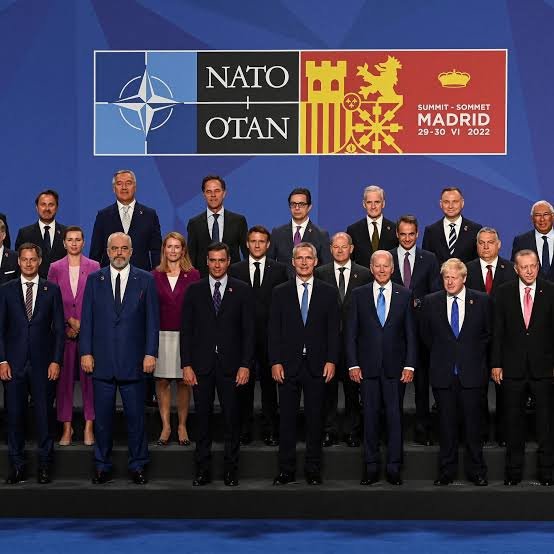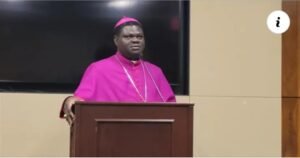NATO leaders debate Ukraine’s membership bid at summit near Russia’s borders

Lithuania, NATO’s eastern flank and a former Russian-occupied land, becomes the stage for intense discussions on Ukraine’s aspirations for NATO membership as leaders gather for the summit. The recent breakthrough in Sweden’s bid to join the alliance adds momentum to NATO’s determination to confront Russia.
Amidst the presence of German Patriot missile systems and French fighter jets guarding the skies, Ukrainian President Volodymyr Zelensky is set to attend the two-day summit in Vilnius. He aims to make a compelling case that Ukraine deserves membership in the alliance once the Kremlin’s invasion comes to an end.
While NATO is expected to offer strong support for Ukraine’s quest for victory, its 31 member nations remain divided on the extent of Ukraine’s inclusion. Neighboring countries advocate for an explicit timetable, but heavyweight nations like the United States and Germany are cautious about going beyond the earlier commitment to Ukraine’s future membership.
US President Joe Biden, scheduled to meet with President Zelensky during the summit, emphasized that NATO does not have a unanimous agreement on bringing Ukraine into the alliance amidst the ongoing conflict with Russia. This is due to concerns about directly involving NATO in the conflict. Biden stated in an interview with CNN, “I don’t think there is unanimity in NATO about whether or not to bring Ukraine into the NATO family now.”
Nevertheless, NATO is offering Ukraine a pathway toward membership by simplifying the accession process and removing the requirement for a formal roadmap of reforms. White House National Security Advisor Jake Sullivan confirmed that the alliance would outline the necessary reforms for Ukraine to undertake in order to eventually join, although without providing a specific timetable.
As Ukraine continues its counter-offensive, dominant powers such as the United States, Britain, France, and Germany are engaged in negotiations with Kyiv for long-term commitments regarding weapons supplies. While these fall short of Ukraine’s desire for inclusion in NATO’s collective defense umbrella, they aim to assure President Zelensky that his nation can sustain its fight.
In the early hours of Tuesday, Ukrainian officials reported an overnight drone attack targeting Kyiv and the western port city of Odesa. Drone wreckage was found in the Kyiv region, causing minor damages to windows and outbuildings. No immediate information on casualties was available, according to the interior ministry.
This conflict, the largest in Europe since World War II, has prompted NATO to undertake significant defense overhauls since the Cold War. At the summit, alliance leaders are expected to endorse new regional plans for protection against potential Russian attacks and reinforce defense spending targets.
However, granting Ukraine membership remains a contentious issue for some NATO members. Diplomats have engaged in last-minute negotiations over the wording of the final communique to assure Ukraine of progress. In 2008, NATO pledged Ukraine’s future membership but failed to substantiate it with tangible progress, leaving Ukraine in a state of ambiguity.
With more than 500 days elapsed since the conflict began, Putin now faces a stronger NATO presence aligned against Russia. Turkish President Recep Tayyip Erdogan, after prolonged deadlock, recently agreed to advance Sweden’s application for NATO membership to the Turkish parliament for approval. NATO Secretary-General Jens Stoltenberg hailed it as a “historic day” that could pave the way for Sweden to become the alliance’s second new member since Finland joined in April.
Turkey had previously hindered Sweden’s application, accusing Stockholm of harboring Kurdish activists considered terrorists by Ankara. Erdogan raised the stakes by demanding the European Union revive Turkey’s stalled EU membership bid as a precondition for Sweden’s NATO accession. In a joint statement, Stockholm expressed its active support for revitalizing Turkey’s EU membership process.
Although Hungary has yet to approve Sweden’s NATO membership, Prime Minister Viktor Orban’s government has pledged not to be the last to take this step, implying a forthcoming decision.







